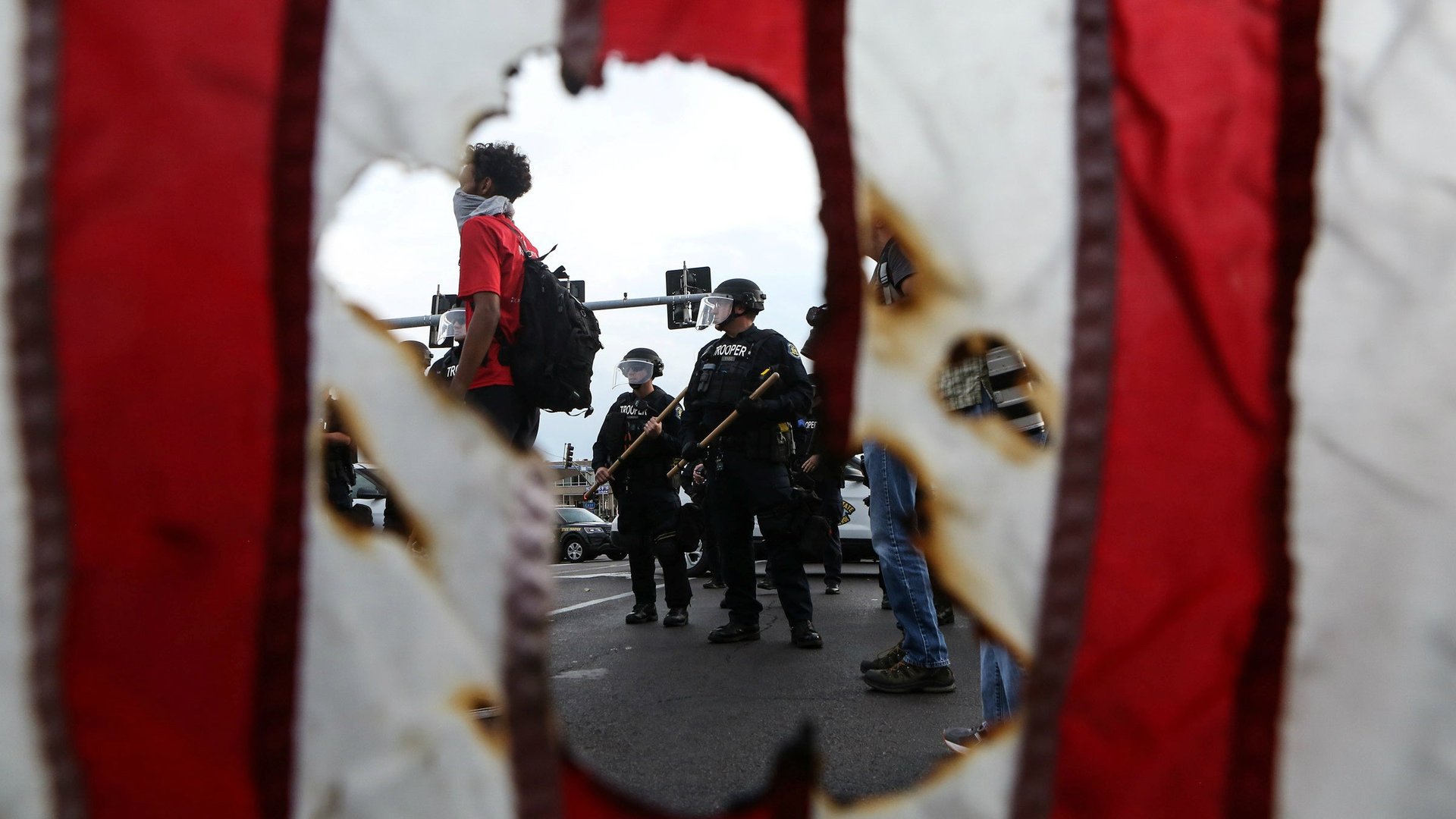The problem with St. Louis police chanting “Whose streets? Our streets!”
Police in St. Louis, Missouri arrested more than 80 people Sunday (Sept. 17) in the third day of protests following a judge’s decision to acquit a white former officer charged in the 2011 death of a black man. As police responded to protesters—some of whom smashed windows and flipped over garbage cans—at least one group of officers was caught on camera shouting “Whose streets? Our streets!”


Police in St. Louis, Missouri arrested more than 80 people Sunday (Sept. 17) in the third day of protests following a judge’s decision to acquit a white former officer charged in the 2011 death of a black man. As police responded to protesters—some of whom smashed windows and flipped over garbage cans—at least one group of officers was caught on camera shouting “Whose streets? Our streets!”
It was an odd thing to hear coming from police officers. After all, the line is a storied protest chant not typically in the lexicon of people in positions of authority. That officers would appropriate that very language offends the sensibilities of those with a historical perspective as the US deals with the latest example of unrest over a police shooting of a black man.
A rallying call of the oppressed
As a protest chant, “Whose streets? Our streets!” has been used repeatedly across the last few decades to send a signal about the contest over space, says Tamar Carroll, professor of history at the Rochester Institute of Technology. It has been used in the immigration debate, in times of heightened racial tension (including in New York in 1990, and Oakland and Ferguson, Missouri in 2014), by antiwar demonstrators, and in the late 1980s and early 1990s, when AIDS activists and LGBTQ people responded to violence against their community.
Earlier this year, Carroll co-curated an exhibit at The Bronx Documentary Center that was named for the chant, which explored protests for social change through history and the present day.
In recent years, the words have been used most prominently by black Americans expressing frustration with law-enforcement authorities and the fatal shootings of black men by police. An investigation earlier this year by The New York Times (paywall) found that, with the exception of a few cases, officers have avoided conviction in high-profile cases.
The chant’s appropriation by St. Louis police officers sends a chilling message to protesters and to the broader community the officers serve, Carroll said: “It’s a way for marchers to say: ‘You have to reckon with us…by virtue of our numbers you have to listen. I think it’s unfortunate, and potentially inflammatory, for the police to appropriate a chant thats been widely used by various social-justice movements, especially Black Lives Matter.”
To be sure, some St. Louis officers condemned the use of the phrase, including one who spoke with a photojournalist.
The damage of appropriation
Appropriation of language can rob it of some of its power. In many instances, this has been positive. For instance, calling someone “queer” was long pejorative until the late 1980s, when the LGBTQ community reclaimed it and effectively neutralized its negative charge.
In the tradition of chants, “Whose streets? Our streets!” isn’t as specific as “Silence=Death,” which originated with by AIDS activists, or “No Justice, No Peace,” which has been used by labor movements and chanted by Black Lives Matter activists. ”Whose streets? Our streets!” is more malleable and therefore more easily appropriated, Carroll explains.
“I don’t think it’s going to immediately lose its power,” she says. “I do think it was an unwise and inflammatory rhetorical upping. I can’t think of any other slogan that’s as closely related to the control of space.”